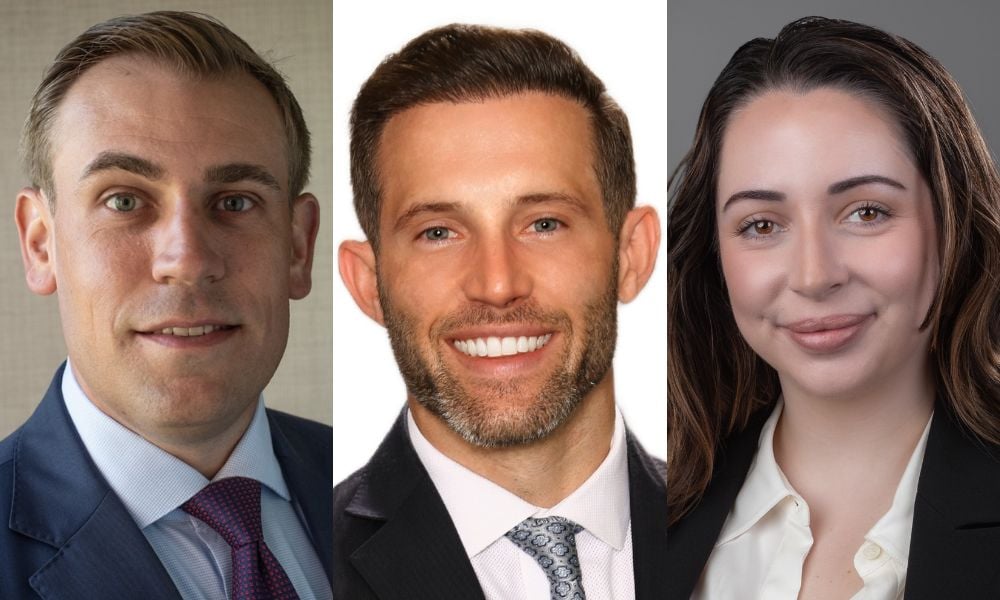

When the global economy collapsed in 2008, many financial professionals like Brandon Zureick of the Ohio-based RIA Johnson Investment Counsel were just beginning their careers. The crisis left an indelible mark on investment approaches today as record-breaking volatility hits the U.S.
“I think young people that started their careers in the financial crisis learned a lot of important lessons early in their career, and probably adopted a bit more conservative approach to investing just given the era of the market that they lived through,” said Zureick, a member of InvestmentNews’ Rising Stars of 2024 for those under 40 years old.
Zureick, a fixed income portfolio manager, feels his firm’s independent status works in its favor during times of market volatility.
“As a fee-only investment advisor, you’re susceptible to shifts in the market—we’ve always been believers in running the firm conservatively, not carrying debt on the balance sheet,” Zureick said. “The trend in the RIA space to make big acquisitions, or to self-sell firms and relinquish independence, but we have solidly resisted those trends and these are great examples of why. We remain conservatively managed and independent because we're not susceptible or vulnerable to having to make unpleasant decisions at the firm in reaction to short-term market news.”
For Caroline Taylor, 26, director of wealth strategy at Carson Wealth in Franklin Lakes, NJ, the current downturn has been an opportunity to guide clients toward long-term wins. Taylor leans heavily on tax-focused planning during volatility—including IRA contributions at market lows, Roth conversions when asset values are depressed, and redeploying idle cash into discounted equities.
"I’ve learned that market downturns create unique opportunities—capital doesn't disappear, it simply gets redistributed. These volatile conditions reward strategic, creative and calm investors," Taylor said. "These thoughtful approaches can help clients make lemonade from lemons. As a young advisor, I bring a fresh perspective that combines time-tested wisdom with real-world strategies for shifting markets. I firmly believe that advisors deliver their greatest value not during bull markets but during pullbacks when clients need confidence and guidance to recognize emerging opportunities."
Taylor’s collected mindset stems from her earliest exposure to market chaos: watching her mother, a financial advisor, stay composed during the 2008–2009 financial crisis. “Despite the turmoil, my mother maintained her composure and consistently reassured clients that markets would eventually recover, a strategy that ultimately preserved significant client wealth and inspires my proactive approach today,” she said. "The panic that engulfed her clients as markets plunged during the housing bubble collapse became my first lesson in how deeply market movements impact people—both emotionally and financially."
Those early lessons paid off during more recent turbulence as well. “Within my own career, I have navigated two periods of uncertainty: the COVID-related volatility in 2020 and the 2022 technology sector collapse, when many declared tech investments 'dead,’” said Taylor. “In both pullbacks, I utilized the lessons learned from my mentor of maintaining conviction and staying calm during market turbulence, and this approach was rewarded each time.”
Taking the emotion out of investment decisions is also a priority at Dallas-based Third Act Wealth Management LLC, founded by 32-year-old Nick Lalonde. Lalonde emphasizes client education as the foundation of his approach to volatility.
“What causes volatility can look very different, but it all ends the same way. When I see this volatility, we teach our clients to expect this and to plan for it, and then we also teach them how we're going to take advantage of it,” said Lalonde.
That advantage often comes in the form of strategic planning. “If someone has cash surpluses, we’re talking to them about that,” Lalonde added. “It’s a good opportunity for Roth conversions, it’s a good opportunity for tax-loss harvesting in some cases.”

Rajesh Markan earlier this year pleaded guilty to one count of criminal fraud related to his sale of fake investments to 10 clients totaling $2.9 million.

From building trust to steering through emotions and responding to client challenges, new advisors need human skills to shape the future of the advice industry.

"The outcome is correct, but it's disappointing that FINRA had ample opportunity to investigate the merits of clients' allegations in these claims, including the testimony in the three investor arbitrations with hearings," Jeff Erez, a plaintiff's attorney representing a large portion of the Stifel clients, said.

Chair also praised the passage of stablecoin legislation this week.

Maridea Wealth Management's deal in Chicago, Illinois is its first after securing a strategic investment in April.
Orion's Tom Wilson on delivering coordinated, high-touch service in a world where returns alone no longer set you apart.
Barely a decade old, registered index-linked annuities have quickly surged in popularity, thanks to their unique blend of protection and growth potential—an appealing option for investors looking to chart a steadier course through today's choppy market waters, says Myles Lambert, Brighthouse Financial.
